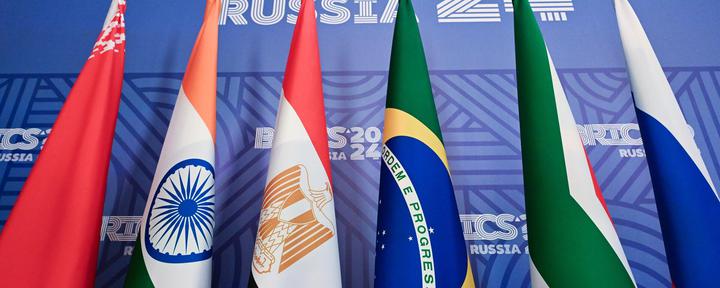Author: Prof. Engr. Zamir Ahmed Awan, Founding Chair GSRRA, Sinologist, Diplomat, Editor, Analyst, Consultant, Advisor, and Non-Resident Fellow of CCG. (E-mail: awanzamir@yahoo.com).
The 16th BRICS Summit, scheduled to take place from October 22 to 24, 2024, in Kazan, Russia, arrives at a time of unprecedented global uncertainty. With the Ukraine war ongoing, Israeli aggression against neighboring Arab nations, and the irrational support by the United States to both Ukraine and Israel, the world finds itself questioning the viability of the current global order. The BRICS bloc—comprised of Brazil, Russia, India, China, and South Africa—offers an alternative to U.S. hegemony and represents a rising hope for countries seeking a more balanced and multipolar world.
Global Turmoil and the Significance of BRICS
The global economic landscape is in turmoil, marked by inflation, financial instability, and an overall meltdown exacerbated by the ongoing wars and conflicts. The failure of the United Nations to effectively address and resolve the war in Ukraine, and its inability to stop the genocide in Gaza, has further diminished trust in traditional global institutions. The dominance of the U.S.-led world order, which is heavily influenced by political biases and economic coercion, is being questioned by many nations. The world is increasingly looking for alternatives, and BRICS has emerged as one of the most viable platforms for those seeking change.
In light of these global challenges, the BRICS summit in Kazan is more significant than ever. As the influence of the West declines, nations are turning to BRICS for solutions, not only to geopolitical crises but also to build a more equitable and stable economic future. The BRICS nations have been at the forefront of promoting peace, economic cooperation, and multipolarity, offering hope to countries fed up with U.S. hegemony and unilateral actions.
Expansion of BRICS: A New Era of Cooperation
One of the most significant aspects of the upcoming BRICS summit will be the discussion of further expansion. BRICS is no longer just a platform for five emerging economies; it is quickly becoming a broader coalition that is attracting more nations. Recently, several countries, including Saudi Arabia, Argentina, Egypt, and Iran, have shown interest in joining the bloc, and their participation is likely to be formalized soon. This expansion highlights the growing recognition of BRICS as a viable alternative to Western-dominated institutions like the IMF and World Bank.
This broadening of BRICS reflects the desire of many nations to escape the U.S.-centric global system and develop independent economic and trade relations. The world is evolving into a more diverse network of alliances, where new trade blocs and routes will emerge, based on mutual respect and cooperation rather than coercion and dominance.
De-Dollarization and Economic Sovereignty
One of the most critical agendas at the 16th BRICS Summit will be discussions on de-dollarization. The overwhelming reliance on the U.S. dollar for international trade has given the United States disproportionate influence over the global financial system. BRICS members, particularly China and Russia, have long advocated for an end to this trade and financial hegemony. The bloc is expected to further its efforts to develop alternative financial systems, including the use of national currencies in trade and the creation of independent financial institutions.
The push for de-dollarization is a response to the aggressive use of sanctions by the U.S. to achieve its geopolitical objectives. Countries like Russia and China, both critical players in BRICS, have been working on mechanisms to trade without the dollar, creating a new financial architecture that can reduce dependency on the West. This movement could dramatically reshape global trade, empowering nations to conduct business without fear of economic coercion.
China and Russia: Navigating a New World Order
China and Russia have emerged as the navigators of this new world order, with both nations playing pivotal roles in BRICS and other multilateral platforms such as the Shanghai Cooperation Organization (SCO). Russia, under the leadership of President Vladimir Putin, has taken a firm stand against Western interference, especially in the context of the Ukraine war. Hosting the BRICS summit in Kazan further strengthens Russia’s role in leading the charge for a multipolar world.
China, on the other hand, continues to lead economic development within BRICS, with its Belt and Road Initiative (BRI) complementing the group’s goals of global connectivity and cooperation. China's massive economic clout, coupled with its commitment to peaceful development, positions it as a key driver of BRICS' future.
Both nations understand the importance of maintaining a peaceful global order while opposing Western hegemony. Their leadership within BRICS offers hope to nations that seek an alternative path to development and prosperity, free from the pressures of the U.S.-led system.
A Hope for a Multipolar World
The failure of the United Nations to effectively intervene in conflicts like the Ukraine war and the Israeli-Palestinian crisis has led many nations to lose faith in the global order. In this environment, BRICS stands as a beacon of hope for those seeking peace, economic cooperation, and fairness. With its growing membership, the bloc is becoming a powerful force in global politics, offering countries a way out of the U.S.-dominated system.
The upcoming 16th BRICS Summit in Kazan is not just a diplomatic event but a symbol of the shifting global power dynamics. With discussions on expansion, de-dollarization, and economic sovereignty, BRICS is poised to reshape the future of global governance. The world is no longer content to be ruled by a single hegemon; instead, nations are rallying around platforms like BRICS to build a more inclusive, multipolar world.
The16th BRICS Summit promises to be a transformative moment in global politics. As the world grapples with war, economic instability, and declining trust in Western institutions, BRICS offers a platform for cooperation, peace, and sustainable development. With China and Russia at the helm, BRICS is poised to lead the world toward a new era of multipolarity and economic fairness. The world is changing, and BRICS is at the forefront of that change.
(ASIA PACIFIC DAILY)
